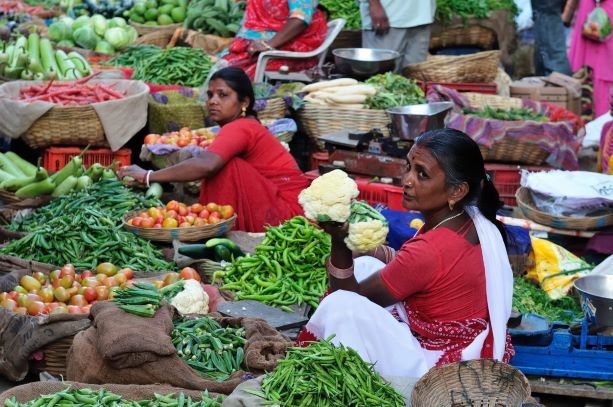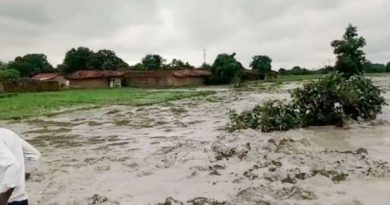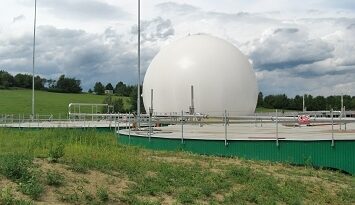Beware Delhi! Toxic Metals Found in Vegetables Grown along Yamuna’s Floodplains

A study conducted by the National Environmental Engineering Research Institute (NEERI) has found dangerous level of metals in vegetables grown in fields along the river Yamuna which could cause life-threatening diseases like cancer.
NEERI took samples from three east Delhi locations and checked the status of metal concentration in seven vegetables — cabbage, cauliflower, radish, brinjal, coriander, fenugreek and spinach. The vegetable samples were taken from Usmanpur Khadar, Geeta Colony and Mayur Vihar and were tested for the presence of metals like Lead (Pb), Nickel (Ni), Cadmium (Cd) and Mercury (Hg).
The most worrying find was from the humble coriander, a leafy spice used in every dish as a garnish. The report found the maximum lead contamination in coriander collected from Geeta Colony.
The safe limit for lead in vegetables is 2.5mg/kg as per the Food Safety and Standards Authority of India (FSSAI). The level of the metal detected in samples collected from the floodplain ranges from 2.8mg/kg to 13.8mg/kg, it said, adding heavy metal toxicity can damage organs.
The study, conducted by NEERI on the directions of National Green Tribunal said, “prolonged human consumption of unsafe concentrations of heavy metals in foodstuffs may lead to disruption of numerous biological and biochemical processes in the human body. Heavy metal toxicity can lower energy levels, damage the functioning of the brain, lungs, kidney, and liver. They can also damage the blood composition and other important organs. Long term exposure of metals may even cause cancer.”
The report said that other metals – cadmium, mercury and nickel were found below the FSSAI standards. “In the present study, only levels of lead were found exceeding the FSSAI limits in most of the vegetable samples, therefore, there is need for further investigation on the sources, from where Pb is getting accumulated in the vegetables, though corresponding soil samples also exhibited high levels of lead. Possible sources of lead are industries dealing in automobiles, battery, paint, polythene, pesticides and lead processing unit,” the NEERI report said.
It also suggested monitoring and testing of heavy metals in vegetables, as well as soil and irrigation water along with water in river Yamuna should be done by concerned authorities on a regular basis. The study was included in the second interim report prepared by the NGT-appointed monitoring committee for the rejuvenation of the river Yamuna and abatement of pollution.
It was submitted before the tribunal in May this year.
Vegetable Farming Continued Despite Ban
Vegetable farming on the floodplains of the Yamuna continues unabated despite a ban by the National Green Tribunal (NGT) in 2015. In 2015, the NGT had directed that no authority shall permit and no person shall carry out any edible crops or fodder cultivation on the floodplain till Yamuna is made free of pollution and is restored to its natural sate.
A record note signed by the two members of the NGT-appointed committee, Shailaja Chandra and BS Sajwan, read, “ since the pollution of the river has increased manifold, the monitoring committee requested that an early direction be given to the authorities concerned.”
According to officials, farming is carried out all along the Yamuna’s stretch which is more than 22 km long. The concern of toxicity stems from the notion that farmers depend on the polluted river water to irrigate the fields. Earlier studies by TERI, Toxics Link and other NGOs had also suggested that the vegetables and soil samples contain high doses of metals such as lead, nickel chromium and mercury.
According to the Central Water Commission, Yamuna Basin Organisation, 85 percent of the pollution in the Yamuna comes from domestic sources. The major sources contributing to the pollution of Yamuna are untreated sewage; industrial effluents; the dumping of garbage and dead bodies; the immersion of idols; and pollution due to in-stream uses of water.
The Kicker
After four years of ban on cultivation on the Yamuna floodplain, the panel appointed to monitor the pollution of the river has recommended that farmers may be allowed to grow crops and vegetables but with regular and constant watch on the metal content and pesticides levels present in the harvested produce.
The recommendation of the committee comprising former Delhi chief secretary Shailaja Chandra and retired expert member BS Sajwan came after the report of the study carried by scientists at National Environmental Engineering Research Institute (CSIR-NEERI) said “farmers may be asked to maintain or provide relevant details with respect to their land under cultivation, type of crops grown, quantity and source of water used, type and quantity of fertilisers, pesticides or any other substance used for different crops in different seasons. At the same time, metal or pesticide contents present in the vegetables sold in different areas of Delhi, and also grown under organic farming needs to be analysed periodically, to ascertain that levels of metals and pesticides are within the safe limits of human consumption.”
Now, it remains to be seen how will farmers ascertain or give ‘relevant details’ about the crops and source of water when officials in past 4 years have failed to stop them from cultivating vegetables and crops despite a ban.




